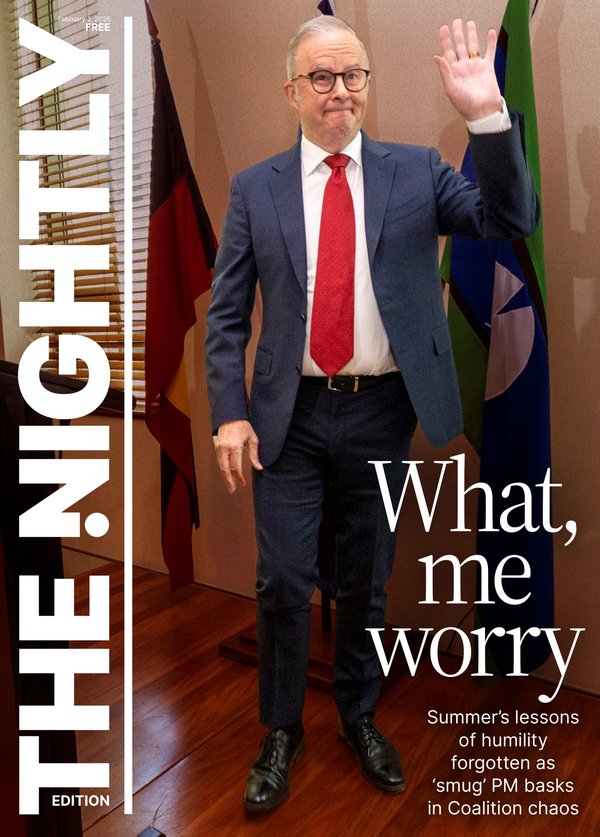Netflix’s Baby Reindeer and trauma-fuelled confessional comedies
Baby Reindeer has everyone talking because it’s really not the TV series that you think it’s going to be.
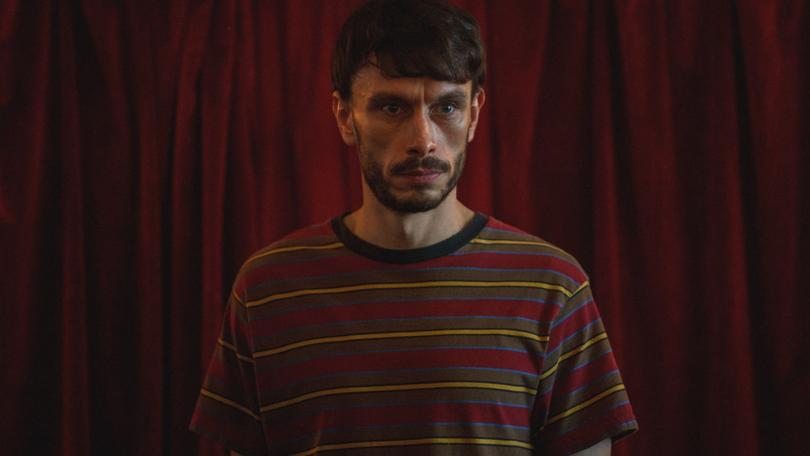
The topline to global Netflix sensation Baby Reindeer sounds like a menacing but familiar story designed to grab you — an aspiring comedian’s life is turned upside down when a woman begins stalking him.
Even most of the British series’ marketing images – an older, less conventionally attractive and dowdy woman with an unhinged look on her face — suggests it’s a certain type of show. But those tropes hide a much more interesting and artistically ambitious story than another run-of-the-mill true crime titillation.
In the 10 days since its release, Baby Reindeer has captivated audiences not because of its anxiety-inducing stalker, the maniacal Martha with her shifty eyes, violent temper and complete lack of boundaries. She is not someone you want to spend time with, even as a character on TV.
Sign up to The Nightly's newsletters.
Get the first look at the digital newspaper, curated daily stories and breaking headlines delivered to your inbox.
By continuing you agree to our Terms and Privacy Policy.[Spoilers ahead for Baby Reindeer.]
It’s the revelation, in episode four of the seven-part series, that Baby Reindeer is not about Martha but about Donny’s deep psychological damage at being abused by an influential TV writer.
It’s a harrowing episode in which Donny, in voiceover, recalls the details of what happened to him years earlier. As a younger comedian, he was bombing during a month-long show at the Edinburgh Fringe Festival when he met a successful writer and figure in the industry called Darrien.
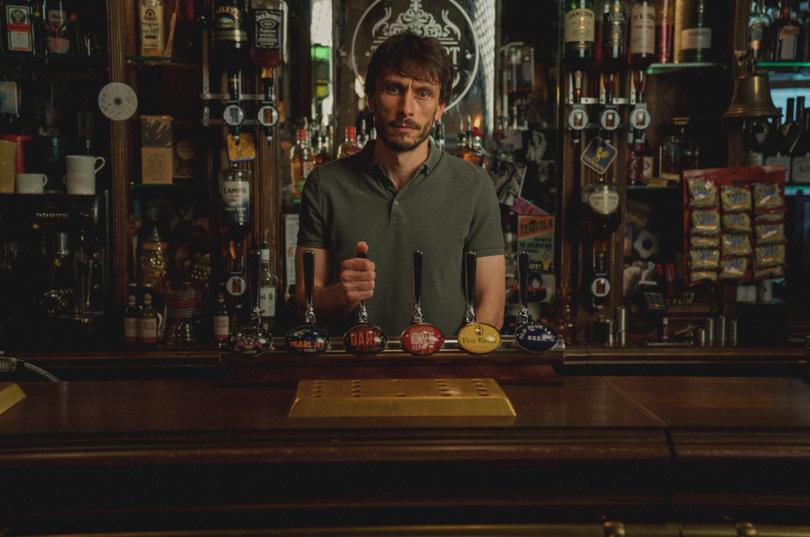
Darrien begins to groom Donny (helps him tweak his show, gets him a writing job for the screen) and before long, the older man is telling him how only special people are allowed in his home and giving him drugs including GHB. Darrien says to him, “It relaxes you, trust me, you haven’t experienced anything like it”.
While Donny is high off in the heavens, Darrien sexually abuses him. That episode of Baby Reindeer shows you the complexity of the abuser/victim relationship, including that Donny didn’t storm out and run off. After one of the worst incidents, he even sticks around for days after, feeding Darrien’s cat.
There is no “correct” reaction to rape, no right way to behave.
Trauma begets trauma, and Donny’s history contextualises his often frustrating and seemingly inexplicable relationship with Martha. It may seem obvious to some that he shouldn’t have let her into his life in the first place, that he should have distanced himself at the first red flag. The “shoulds” are not so straightforward when you have been through what Donny has been through.
The emotional climax of the series is when Donny finally lets it out, telling his story onstage during a performance, and breaking down. It’s a moment of great catharsis.
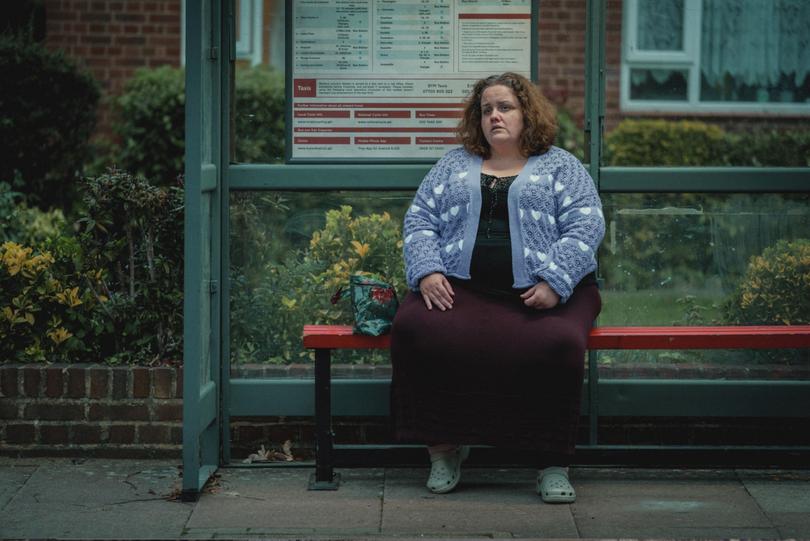
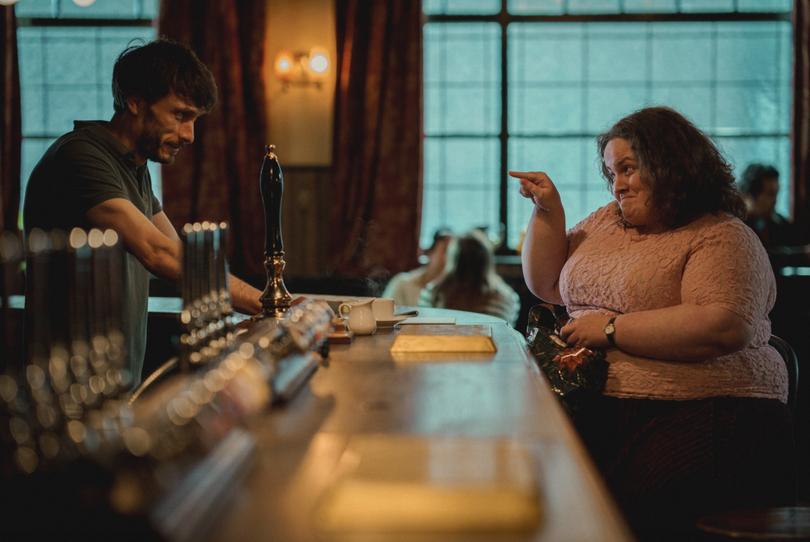
The series itself functions in a similar way. For Baby Reindeer creator Richard Gadd, the show is more than just a piece of entertainment. It’s an invitation of sorts to confront the dark parts of humanity that thrive in the shadows.
The story is adapted from his comedy show Monkey See Monkey Do, based on his experiences. He had a Darrien in his life, and he had a Martha in his life, although the names, timelines and details have been changed. He told The Guardian that Baby Reindeer is “very emotionally true, obviously, I was severely stalked and severely abused”.
Making the show was triggering but the reaction is what helps him process, “The way people received that show, and received me, and accepted what happened to me: it saved my life.”
So often, comedy and tragedy are different sides of the same coin. At a base level, it’s why we find pratfalls and slapstick so funny, despite the likely physical pain of the subject.
Comedy is often how we deal with trauma, and we’ve seen more recently, the willingness of artists to use their own experiences to confront their traumas.
The superb British miniseries I May Destroy You is Micaela Coel’s narrative of her experience of sexual experience, and the incredibly isolating and world-changing ways it shakes your entire being.
I May Destroy You was even more impactful because you knew it was true, and the authenticity of Coel’s intimate voice-powered its authority.
Similarly, Hannah Gadsby broke out on a global level with Nanette, a confessional work that changed what audiences expect from a comedy set. She takes audiences on a journey with her, the life of an LGBTQI woman from a conservative community who was never accepted and the effect of decades of marginalisation and discrimination on someone’s psyche and body.
It was no longer observation, punchline and laughs. Comedy was a moment for collective pain and release. You’ll cry as much as you laugh.
Baby Reindeer is not just another crime drama with outlandish villains. It’s a purging of demons. One piece of art will never be enough to solve all the traumas in the world, nor will it stop it from ever happening again.
But Gadd, who has worked with a British charity helping abuse survivors, believes in the power of “breaking the silence”. Getting it out in the open is always the first step towards justice, towards healing and towards truth.
1800 RESPECT (1800 737 732)
Sexual Assault Resource Centre 1800 199 888

